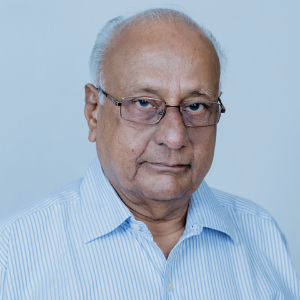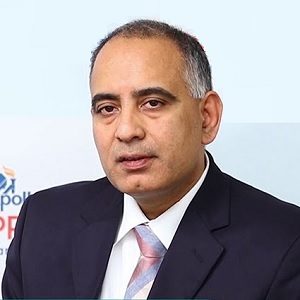Best Lung Cancer Surgery Doctors in India
Following is a list of the most reputed oncologists in India who have extensive expertise in the treatment of lung cancer.
- Medical Oncologist, Gurugram, India
- Over 20 years’ experience
Profile Highlights:
- Dr. Randeep Singh has trained extensively in managing cancer patients at the prestigious Tata Memorial Hospital, Mumbai.
- After spending over 20 years in this field, he has a vast experience in breast, lung, and gastrointestinal cancers.
- Throughout his career, Dr. Randeep Singh has had over 40 publications in national and international journals.
- He has also attended and presented various scientific papers in national and international journals.
- Surgical Oncologist, Gurugram, India
- Over 10 years’ experience
Profile Highlights:
- Dr. Shilpi Sharma is a highly experienced surgeon and oncologist who has previously worked in prestigious institutions such as Tata Memorial Hospital, and National Cancer Institute.
- Throughout her career, she has conducted various high-quality research in the field of head and neck cancers. Dr. Shilpi Sharma has also been part of various randomized and nonrandomized trials and has also been involved in clinical and translational research.
- She is also a member of ICMR guideline committee which formulated the ICMR guidelines on tongue cancers.
- Medical Oncologist, Chennai, India
- Over 40 years’ experience
Profile Highlights:
- Dr. Bellarmine Vincent Lawrence is a well-known Medical Oncologist in South India with a specialization in the treatment of breast cancers.
- He provides overall both pre and post-operative treatment of breast cancer that includes diagnostic, therapeutic as well as palliative care.
- He also provides services for other types of cancers including blood cancer and does procedures like Chemotherapy for the treatment and biopsies for the detection of cancer.
- Medical Oncologist and BMT Specialist, Chennai, India
- Over 25 years’ experience
Profile Highlights:
- Dr. T. Raja is a Medical Oncologist from the Tamil Nadu state with 25 years of know-how in this field.
- He has proficiency in Cancer Screening, Chemotherapy, PICC Line Insertion, Bone Marrow Transplantation, Stem Cell Transplantation, Pap collection, lymphoma, Renal Cell Cancer management, and Head and Neck Tumor.
- Dr. Raja was the Principal Investigator for several clinical studies, a published author for journals, and a teacher.
- Medical Oncologist, Chennai, India
- Over 28 years’ experience
Profile Highlights:
- Dr. Sankar Srinivasan is one of the top Medical Oncologists in India with proficiency in cancer management for about 28 years.
- He got certified in Internal Medicine, Medical Oncology, and Hematology from American Board to enhance his skills.
- Dr. Srinivasan is placed in the best 10% of the Hematologists boards.
- He is an active member of several International Medical Association Boards.
- Oncologist
- Over 10 Years' Experience
Profile Highlights:
- Dr. Priya Tiwari is a renowned Medical Oncologist who is currently serving as the Head of Medical Oncology (Unit II) at Artemis Hospital, in Gurgaon.
- With comprehensive training in Medical Oncology and Internal Medicine at the prestigious All India Institute of Medical Sciences (AIIMS), Dr. Tiwari advocates for a holistic approach to patient care, emphasizing not just treatment but overall well-being.
- Clinically, Dr. Tiwari treats a broad range of oncological conditions, including brain tumours, soft tissue sarcoma, bone sarcoma, lung cancer, genitourinary cancers, gynecological cancers, colon-rectal cancer, head and neck cancers, thyroid cancer, lymphomas etc.
- Dr. Priya Tiwari is also a gold medalist in MBBS and has published many articles in prestigious publications. Additionally, she has conducted substantial research and made major contributions in the field of medical oncology.
- Being involved in many professional associations such as the Immuno-oncology Society of India, American Society of Clinical Oncology (ASCO), and European Society for Medical Oncology (ESMO), Dr. Tiwari remains up to date with the latest developments in her area of expertise.
Best Lung Cancer Treatment Hospitals in India
CARE Hospitals, Hyderabad
- City: Hyderabad, India
Hospital Highlights:
- CARE Hospitals were established in the year 2000, by CARE Group.
- The multispecialty hospital has 435 beds, including 120 critical care beds, with an annual inflow of 180000 outpatients and 16,000 in-patients.
- The hospital provides specialty medical services in Cardiology, Cardiothoracic Surgery, Pediatric Cardiology, Pediatric Cardiothoracic Surgery, Neurology, Neurosurgery, Nephrology, and Urology.
- The hospital has the first dual source, 128 slice CT scanner (for high precision cardiac imaging) – the first of its kind in south India.
- The hospital offers a wide range of accommodation facilities for the convenience of its varied patient base, ranging from general wards to super deluxe rooms.
Fortis Hiranandani Hospital, Mumbai
- City: Mumbai, India
Hospital Highlights:
- Fortis Hiranandani hospital was established in 2007.
- The hospital is an advanced tertiary care, multi-specialty hospital equipped with 149 beds.
- The hospital is equipped with a super ICU to provide emergency medical care to critically ill patients.
- The hospital is NABH accredited.
- The critical care facility in the hospital is augmented with the state-of-the-art facilities that facilitate speedier diagnosis and efficient monitoring.
- The hospital provides specialty medical services in cardiology, orthopedic science, pediatric science, neurology, diabetic care, urology, nephrology, ENT, obstetrics, gynecology, cosmetic surgery, bariatric surgery, neuro and spine care.
Fortis Hospital, Anandpur, Kolkata
- City: Kolkata, India
Hospital Highlights:
- Fortis Hospital, Anandapur, Kolkata is a world-class super-speciality equipped with the latest technologies in the medical world.
- The hospital is NABH accredited.
- This state-of-the-art facility specializes in cardiology and cardiac surgery, urology, nephrology, neurosciences, orthopaedics, digestive care, emergency care and critical care.
- The hospital, governed by integrated Building Management System (IBMS), has a pneumatic chute system, for quick vertical and horizontal transportation between floors, facilitating speedy transfer of patient specimens, documents, reports, and medicines to the concerned departments.
- The hospital also has a nephrology department with over 28 advanced dialysis units.
Fortis Hospital Banerghatta, Bengaluru
- City: Bengaluru, India
Hospital Highlights:
- Fortis Hospital Bannerghatta, Bengaluru was established in 2006.
- The hospital is a 276 bedded multi-specialty tertiary care facility.
- The hospital specializes in cutting-edge medical technology and dedicated patient care services.
- The hospital is equipped with state-of-the-art technologies like trans-radial angioplasty, trans-abdominal cardiac surgery, and computerized TKR navigation surgery.
- The hospital provides specialty medical services in cardiology, cardiac surgery, orthopedics, neurology, neuro-surgery, GI, and Minimal Access Surgery (MAS).
Gleneagles Global Hospital, Parel, Mumbai
- City: Mumbai, India
Hospital Highlights:
- Gleneagles Global Hospital The 450-bed facility comprises of 17-stories, housing state-of-the-art infrastructure, and advanced medical care facilities.
- The hospital offers end-to-end clinical, surgical, and diagnostic services. It is equipped with a team of eminent medical professionals aided by qualified nurses and medical staff
- The Hospital offers advanced Endoscopic procedures, Hepatobiliary and Liver Surgeries, Surgical and Medical Gastroenterology, Bariatric Surgery, and Robotic surgery.
- The hospital is a center of excellence for Orthopedics, Joint Replacement, Knee Replacement, and Hip Replacement surgery.
Jaypee Hospital, Noida
- City: Noida, India
Hospital Highlights:
- Jaypee Hospital is the flagship hospital of the Jaypee Group.
- This hospital has commissioned 525 beds in the first phase and has been planned and designed as a 1200 bedded multi-specialty facility.
- It holds the accreditation of the NABH and NABL.
- The hospital has state-of-the-art infrastructure equipped with the latest technologies and modern equipment like 64 Slice PET CT, Dual Head 6 Slice SPECT CT, Gamma Camera, and Da Vinci Robotic Surgery for comprehensive robotic surgical solutions.
- It has special Centers dedicated to the major specialties to provide hassle-free and high-quality clinical care.
Manipal Hospital, Dwarka, Delhi
- City: New Delhi, India
Hospital Highlights:
- Manipal Hospitals, Dwarka, is a super-specialty hospital in Dwarka, New Delhi, which is a part of Manipal Hospitals Group.
- The hospital aims to provide the best treatment on par with international standards at a fraction of the cost.
- Equipped with 380 beds, the hospital is also one of the new age hospitals which are equipped fully with state-of-the-art infrastructure, cutting-edge technology as well as the latest and advanced clinical practices. The hospital also has 13 modular Operation theatres with 118 beds which are solely meant for critical care.
- The hospital comprises internationally acclaimed doctors and highly professional and experienced hospital and medical staff who are able to provide preventive, therapeutic, and diagnostic services all under one roof.
Pushpawati Singhania Hospital & Research Institute, New Delhi
- City: New Delhi, India
Hospital Highlights:
- Established in 1996, Pushpawati Singhania Research Institute is one of the top hospitals in the NCR region, as well as one of the top facilities in India for gastroenterology. The hospital is one of South Asia’s first institutes in medical and surgical treatment for diseases related to digestion.
- The hospital is equipped with state-of-the art facilities coupled with the latest equipment as well as renowned consultants from various parts of India as well as other parts of the world.
W Pratiksha Hospital, Gurgaon
- City: Gurugram, India
Hospital Highlights:
- W Pratiksha Hospital, Gurugram, is one of the best hospitals in the NCR region. It is also a top hospital in India for IVF. Since its inception, the hospital has performed over 5500 successful IVFs. The hospital also specializes in gynecology.
- With over 20 years of experience in providing quality healthcare, the hospital is known as one of the most trusted and valued health providers in India.
- Equipped with world-class medical facilities and advanced technology, the hospital’s doctors and clinicians also have a track record of delivering excellent results. The hospital is also known for focusing on preventive well-being as much as on curative treatment.
- The hospital has earned the trust of its patients, by providing the best available treatments at affordable costs.
Narayana Superspeciality Hospital, Gurugram
- City: Gurugram, India
Hospital Highlights:
- Situated near DLF Cyber City, Gurugram, Narayana Superspecialty Hospital is one of the top medical facilities in the Delhi NCR region, catering to the needs of the people. Known for its commitment to quality medical care and patient service, the hospital is a state-of-the-art facility with planned and well-equipped sections, which includes a spacious OPD area as well as comfortable patient rooms.
- It is the closest super-specialty hospital from Indira Gandhi International Airport towards Gurugram, and also the nearest super specialty hospital from DLF Cyber City. It is also close to major residential areas in Gurugram.
- It is part of the renowned Narayana Health Group. Established in 2000, by Dr. Devi Shetty, a renowned cardiac surgeon, it has grown to be one fo India’s leading healthcare groups.
Lung Cancer
Lung cancer (lung carcinoma) is a malignant tumor of the lung. Like most cancers, Lung cancer can spread beyond the lung by the process of metastasis into nearby tissue or other parts of the body. Most cancers that start in the lung, known as primary lung cancers, are carcinomas.
Causes & risk factors of Lung Cancer
- Smoking, both active & passive smoking.
- Having family history of lung cancer
- Coming in contact with radon gas, asbestos & other carcinogens.
Signs & symptoms of Lung Cancer
- Cough that doesn’t go away
- Coughing up blood
- Pain in the chest
- Hoarseness
- Loss of appetite
- Loss of weight
- Shortness of breath
Types of Lung Cancer
There are two major types of Lung Cancers:
Small cell lung cancer (SCLC)- Small cell lung cancer (SCLC) occurs mostly in heavy smokers & spreads rapidly to other parts of the body.
Non-small cell lung cancer (NSCLC)- Non-small cell lung cancer (NSCLC) is the most common type of lung cancer. It is further classified into 3 types:
- Adenocarcinomas- These occur in the gland cells that are present in the lining of the airways & produces mucus.
- Squamous cell carcinoma– Squamous Cell Carcinoma are carcinoma in the the cells that cover the surface of the airways.
- Large cell carcinoma- These cancer cells appear large and round under the microscope.
- Undifferentiated non-small cell lung cancer- These are are undeveloped cancer cells.
Stages of Lung Cancer
- STAGE I: Cancer is confined to the lung.
- STAGE II: Cancer is present in the lung and nearby lymph nodes.
- STAGE III: Cancer is present in the lymph nodes & may be present on one side of the chest where the cancer started growing or may be present on the opposite of the chest as well.
- STAGE IV: Cancer has spread to both lungs & into the area that is around the lungs.
Diagnosis of Lung Cancer
Lung Cancer Treatment
Surgery
Surgery is considered as preferred line of intervention specially in early stage lung cancers when the disease is still localized. Surgery may be:
Wedge resection
During Wedge resection, the cancerous tissues along with a small margin of healthy tissues are removed.
Segmental resection
During Segmental resection, a large portion of the lobe is removed.
Lobectomy
In lobectomy, an entire lobe of lung is removed.
Pneumonectomy
In Pneumonectomy, the entire lung is removed.
Besides lungs, lymph nodes of the chest may also be removed to check the metastasis of cancer.
If the size of the tumor is large, oncologists may decide to provide Chemotherapy and Radiation Therapy before surgery so as to shrink the tumor to an extent (Neo-adjuvant Therapy). Similarly, Chemo and Radiation Therapy could be done after surgery to kill residual cancer cells Adjuvant Chemotherapy).
Chemotherapy
Chemotherapy is the use of anti-cancer drug that helps to slow or stop the growth of rapidly dividing cells that cause cancer. It prevents the growth of rapidly dividing cells by killing the dividing cells.
Despite its side effects, chemo is still the most widely used cancer treatment option. Unlike radiation and surgery which treats cancer cells at particular locations, chemotherapy drugs can kill cancer cells that have metastated (spread) to different organs in the body.
Targeted Drug Therapy
Targeted therapy is a type of cancer treatment that uses cancer drugs. However, it is different from traditional chemotherapy, which also uses drugs to kill cancer cells. In Targeted therapy, the cancer’s specific genes, proteins, or the tissue environment that contributes to cancer growth and survival are targeted. Targeted therapy is generally used with chemotherapy and other interventions.
Immunotherapy
Immunotherapy (also called biologic therapy) is a new type of cancer treatment where the body’s immune system is boosted to help the body fight cancer by itself. Immunotherapy uses substances made by the body or in a laboratory to improve or restore immune system function.
Radiation Therapy
Stereotactic Radiosurgery
Steretactic Radiosurgery (SRS) is an advanced form of radiosurgery where very high doses of radiation doses are beamed on a target spot using multi dimensional imaging. Stereotactic radiosurgery manages to damage cancer cells with minimal or no damage to surrounding healthy tissues. The well-known SRS options are:
- Linear Accelerator machines. Cyberknife is the most popular machine used today.
- Gamma Knife (less common today)
- Proton Beam Therapy: Advanced Intervention and available at select hospitals globally.
Stereotactic Radiosurgery could be considered for small lung cancers, or where cancer have spread to other organs like the brain.





















